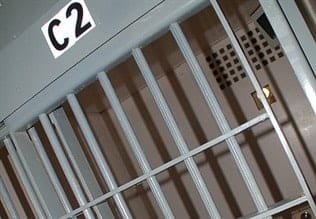The streets were the only constant in my ever-shifting world, and it is there where I got my schooling. At age 12, while housed at a juvenile facility for kids, I lifted a counselor's keys, "escaped" from my building, stole his car, and, in the process, ran over another kid who was coming with me. I spent the next decade climbing the slimy and dangerous ladder of the criminal world.
By the time U.S. military officers were graduating from West Point Academy, I was leading at least 1,000 men in race riots. They were so vicious in their coordination that the ACLU remarked that they wouldn't object to segregation. My own "career" résumé included several murders and being one of the first to introduce crack cocaine to my East L.A. neighborhood. Beatings, shootings, stabbings, you name it. Time in L.A. County Men's Central Jail and N.C.C.F. (North County Correctional Facility) was an opportunity to further my rise to the top.
While behind bars, I honed my skills with on-the-job training. I learned from other seasoned EME members who themselves had been in race wars in San Quentin, Folsom, and Soledad. I learned how to slip out of my handcuffs, cut metal, and smuggle knives, hacksaws, and drugs. Most of all, I learned how to manipulate, intimidate, and confuse deputies who were still learning how to be cops. The county jail became my house, and I did my best to keep my house clean.
Numerous jailhouse attempted murders were done "kamikaze" style—dubbed that by myself and my "elders" for their brazenness and disregard for deputies standing only a few feet away. Deputies are unarmed in county jail, a situation that's taken full advantage of. Not one of my stabbing victims was stabbed less than 20 times. In a two-day span, I stabbed an inmate more than 50 times, and attempted to murder a deputy the next day.
As a result, I was severely beaten. My body was bloody and broken. I reveled in that I almost gave my life to "the cause." I wasn't the least deterred, but I marveled that those "suckers" didn't kill me. How weak of them, I thought. And so I was welcomed into the arms of the Mexican Mafia.












